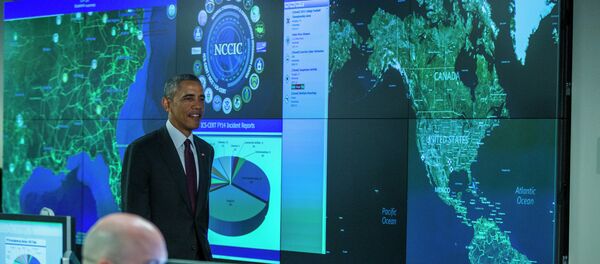"At some point, we need to stop just hearing about cyber attacks that steal our most valuable trade secrets and our most private information, and actually do something to stop them," Representative Adam Schiff, reigning Democrat on the House Intelligence Committee, said before Congress.
Inspired in part by the security breach at Sony Pictures, the Protecting Cyber Networks Act would provide greater legal protections for companies who choose to share digital information with the government. If passed by the Senate, the bill would allow corporations to share user data without fear of consumer lawsuits.
Naturally, this proposal doesn’t sit well with privacy advocates.
With a number of opponents from the American Civil Liberties Union, Free Press, the Electronic Frontier Foundation, and the new America Foundation’s Open Technology Institute, part of the concern lies in the bill’s aim of allowing companies to more actively monitor customers’ online activity. Anything "vaguely defined" as a cyber threat could then be shared with federal agencies.
The bill would also authorize corporations to enact cyber countermeasures with a scope so large it could harm innocent people.
To top it off, the bill would require any federal agencies receiving said threat information to share it with the National Security Agency, an organization that doesn’t exactly have the best track record when it comes to safeguarding citizen data. The revelations of former NSA contractor Edward Snowden revealed the extent of the agency’s domestic spying apparatus, and have left many uncomfortable with government monitoring.
The House will also vote on a second info-sharing bill on Thursday. Largely expected to pass, that bill will classify the Department of Homeland Security as the government’s "cyber hub."
The White House has expressed support for both of these measures.




